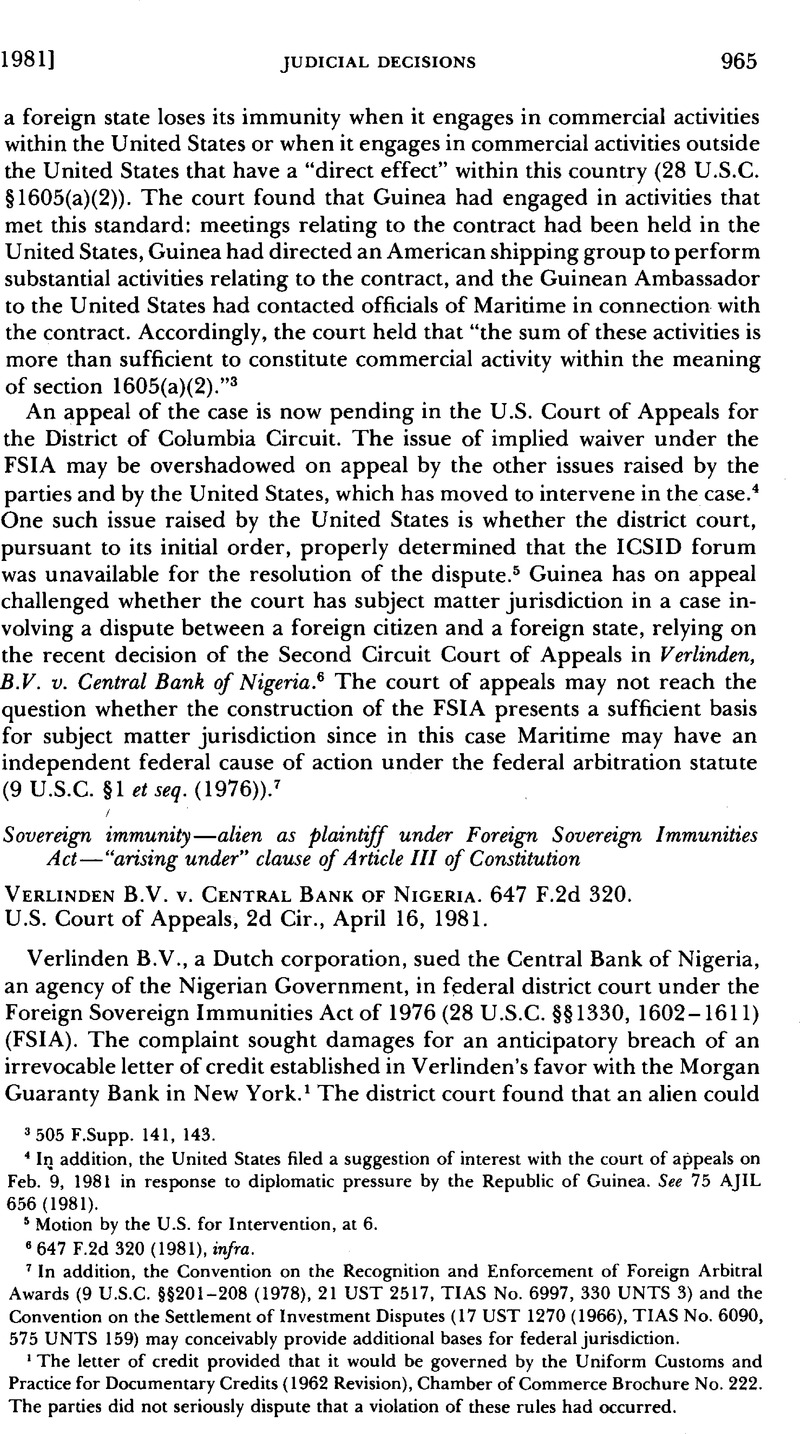No CrossRef data available.
Published online by Cambridge University Press: 27 February 2017

1 The letter of credit provided that it would be governed by the Uniform Customs and Practice for Documentary Credits (1962 Revision), Chamber of Commerce Brochure No. 222. The parties did not seriously dispute that a violation of these rules had occurred.
2 Verlinden B.V. v. Central Bank of Nigeria, 488 F. Supp. 1284 (S.D.N.Y. 1980) (Weinfeld, J.).
3 This case was argued and decided together with Texas Trading & Milling Corp. v. Federal Republic of Nigeria, 647 F.2d 300 (1981), a case arising on similar facts but brought by an American company. See infra at p. 968.
4 647 F.2d 320, 324.
5 28 U.S.C. § 1330(a) (emphasis added by court).
6 647 F.2d at 325 (quoting American Well Works Co. v. Layne & Bowler Co., 241 U.S. 257, 260 (1916)).
7 e.g., Gully v. First National Bank in Meridian, 299 U.S. 109, 116 (1936); Louisville & Nashville Railroad Co. v. Mottley, 211 U.S. 149 (1908).
8 One district court has held, despite Verlinden, that the need to interpret the waiver of immunity in the Treaty of Amity, Economic Relations and Consular Rights between the United States and Iran, 8 UST 899, TIAS No. 3853, 384 UNTS 93, provided a sufficient basis for the assertion of jurisdiction in a suit brought by an Iranian citizen against the Iranian Government. Mashayekhi v. Iran, 515 F.Supp. 41 (1981) (Gesell, J.).
9 A foreign subsidiary may be able to obtain federal jurisdiction for a nonfederal claim by joining its American parent as a coplaintiff and invoking the minimal diversity theory of State Farm Fire & Casualty Co. v. Tashire (386 U.S. 523 (1967)).